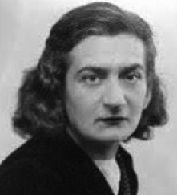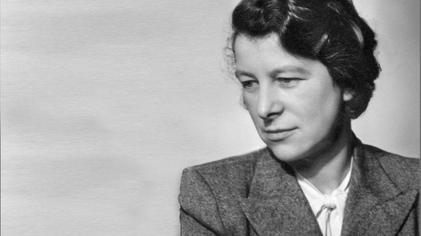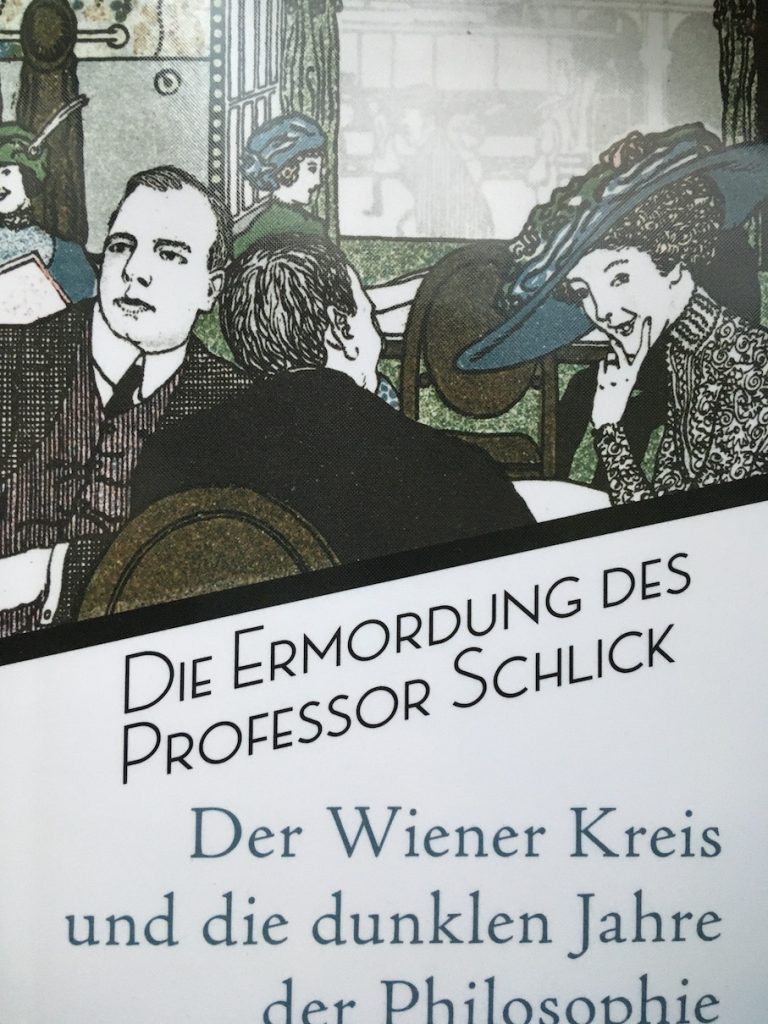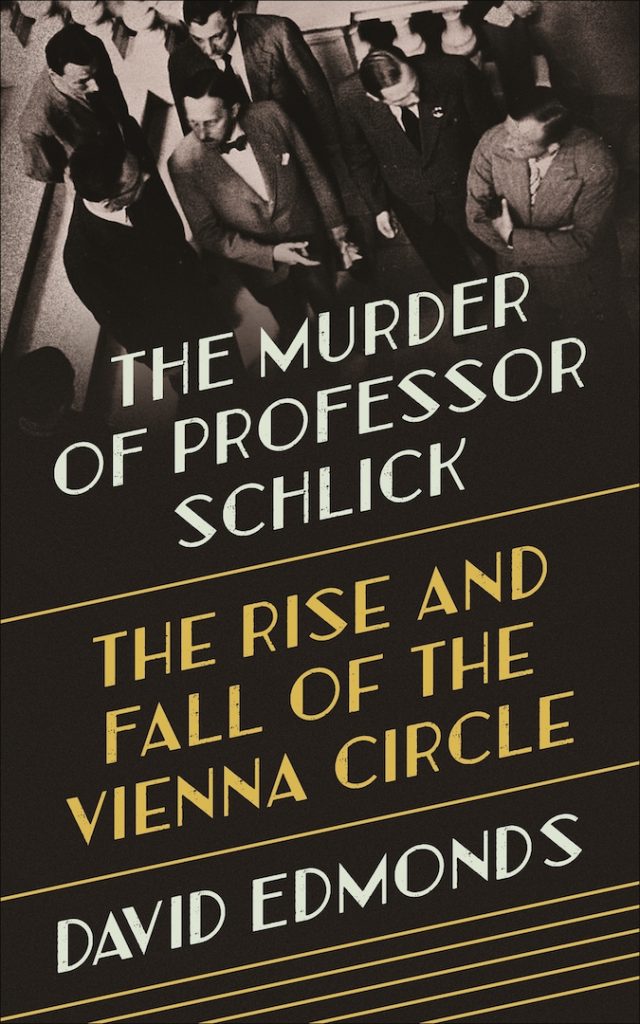The Murder of Professor Schlick: The Rise and Fall of the Vienna Circle – by David Edmonds.
An immensely interesting book just read in German translation. What begins as a lively intellectual romp of the highest niveau ends – as one always knows it will – in animosity and some enmity, in flight and exile and the tragedy of war and the holocaust and, for one, in his murder.
The Vienna Circle was a group of scientists and philosophers that formed in the first decades of the 20th century; meeting and publishing regularly in changing constellations and degrees of exclusivity, united by a shared antipathy to the metaphysical zeitgeist and in search of a more stringentphilosophy of science based on modern logic (inspired firstly by Ernst Mach and later by Wittgenstein’s Tractatus) and an empirical methodology (finding fulfillment only under the stringency of verificationism) – to become known as logical empiricism. Their ranks included people like: Otto Neurath, Philipp Frank, Kurt Gödel, Rudolf Carnap, Friedrich Waismann …and, yes, Moritz Schlick … And in their orbit: Wittgenstein, Karl Popper, Alfred Tarski …. Many were political, many Jewish or with Jewish associations of some sort and to various degrees.
As the people, so not the place. It is an irony of fate (and for some just a matter of birth), that this exquisite group of argumentative rational thinkers should congregate in Vienna, a place that by the 1930s was being increasingly consumed by unreason, as the dark shadows of nationalism and antisemitism fell about them – from within and soon from without with the Anschluß into the German Reich in 1938. Edmonds’ book distinguishes itself in its conjuring of the growing atmosphere of, first, disquiet and then angst, often illustrated through vignettes surrounding the main players and their complicated and sometimes compromised situations.
Women don’t get the short shrift by Edmonds either. Notable is the tenacity of Rose Rand (born in Lemberg – now Lviv), as a young woman actively participating within the ‘circle’ (including the writing of protocols) during the early thirties as Austria imploded, sometimes helped and sometimes hindered in her émigré status as she struggled to keep her ambitions alive – making ends meet mostly through teaching and translating the works of others – first in England and then the United States where she died – alone, as she seems to have been most of her life – in 1980.



Rand didn’t leave Austria until 1939 and it was then – or so it is presumed- with the assistance of another woman: the philosophy professor Susan Stebbing. As apparent by the fore linked SEP entry, she, a formidable intellect who made major contributions to analytical philosopher – and an argumentative voice in the logical positivism debate.
And then there is the remarkable Tess Simpson. As the long time secretary of the Academic Assistance Council (AAC) and its successor the Society for the Protection of Science and Learning (SPSL), Simpson was instrumental in helping many of the Vienna Circle (amongst many others) find safe haven. [This organization continues their work to this day as Council for At-Risk Academics (CARA)] David Edmonds has previously written on Simpson for The Jewish Chronicle here, and his 2017 Radio 4 documentary, “Miss Simpson’s Children” is (as I write) still available.
For me, alone an introduction to these three women made this book a wonderful read. But there is, of course, so much more.
continue reading…

